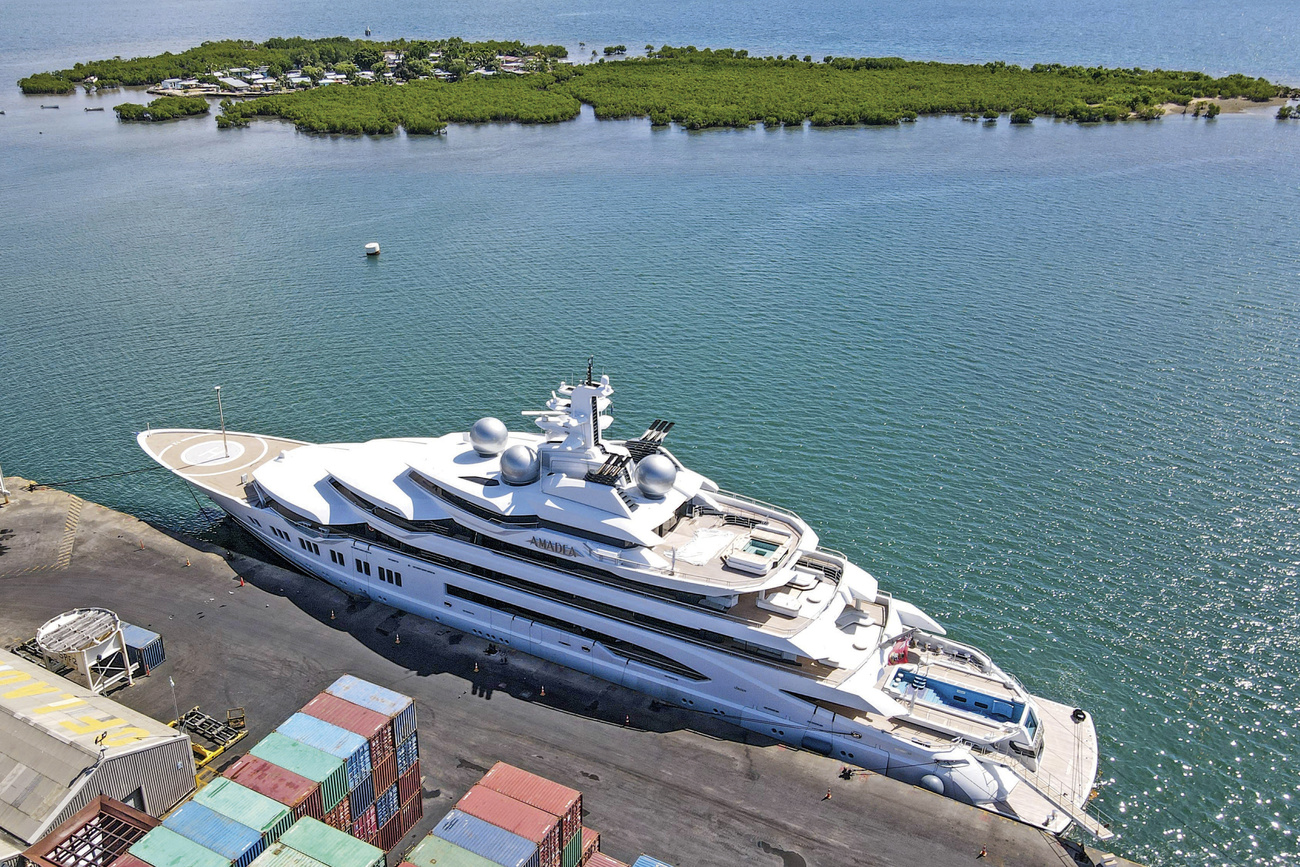
Switzerland releases CHF3 billion of frozen Russian assets

The Swiss government has confirmed that CHF6.3 billion ($6.33 billion) worth of Russian assets remain frozen under sanctions to punish Moscow's invasion of Ukraine. This represents a drop from early April as CHF3.4 billion in provisionally blocked assets have been released.
Erwin Bollinger, head of the Bilateral Economic Relations Division at the State Secretariat for Economic Affairs (SECO), told reporters in Bern on Thursday that the current total of frozen assets now stands at CHF6.3 billion.
This represents a decrease from the CHF7.5 billion in funds the government reported frozen on April 7.
Although an additional CHF2.2 billion were blocked, CHF3.4 billion were released again after being frozen on a precautionary basis.
“The number of frozen assets is not an indicator for how effective sanctions are implemented,” Bollinger said. “The numbers can fluctuate in both directions.”
Swiss banks and asset managers can provisionally freeze funds but funds need to be released if they cannot establish that the assets are directly owned or controlled by a sanctioned individual.
Switzerland could not simply freeze funds if it did not have “sufficient grounds”, said Bollinger.
Eleven properties across Switzerland have been blocked to date, SECO said. It said it had received reports from 72 banks, companies and local authorities, without naming any of the banks or entities.

More
Russian oligarch’s holiday home blocked in Switzerland
Pressure
The estimate was released as Switzerland faces increased pressure to do more to quickly identify and freeze assets of hundreds of sanctioned Russians.
The United States’ Helsinki Commission, a government-funded independent commission which looks at security, cooperation and human rights issues in Europe, in early May called Switzerland “a leading enabler of Russian dictator Vladimir Putin and his cronies”, who the commission said used “Swiss secrecy laws to hide and protect the proceeds of their crimes”.
The Swiss government rejected the accusations “in the strongest possible terms”, while Swiss President Ignazio Cassis had requested the US government “correct this misleading impression immediately” during a telephone call with US Secretary of State Antony Blinken.
Swiss banks hold up to $213 billion of Russian wealth, Switzerland’s bank lobby estimates, with its two largest lenders UBS and Credit Suisse each holding tens of billions of francs for wealthy Russian clients.

More
US commission accuses Switzerland of hiding Russian assets

In compliance with the JTI standards
More: SWI swissinfo.ch certified by the Journalism Trust Initiative


























You can find an overview of ongoing debates with our journalists here . Please join us!
If you want to start a conversation about a topic raised in this article or want to report factual errors, email us at english@swissinfo.ch.